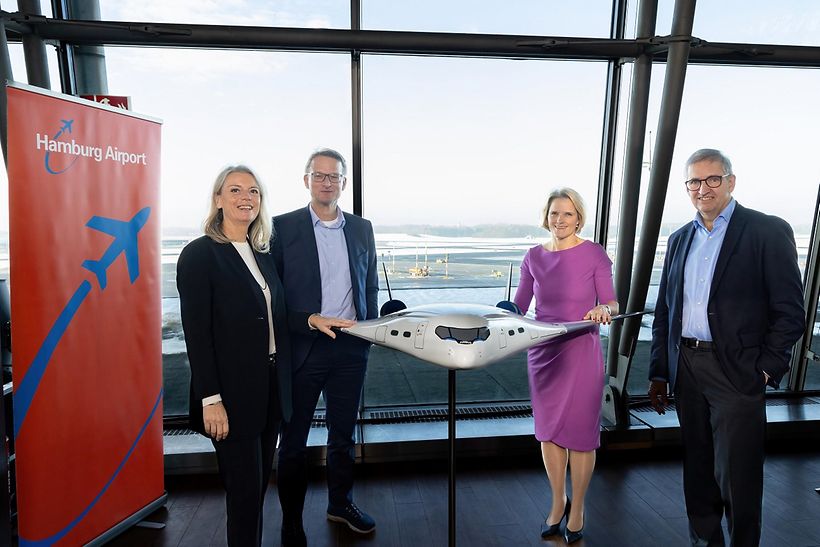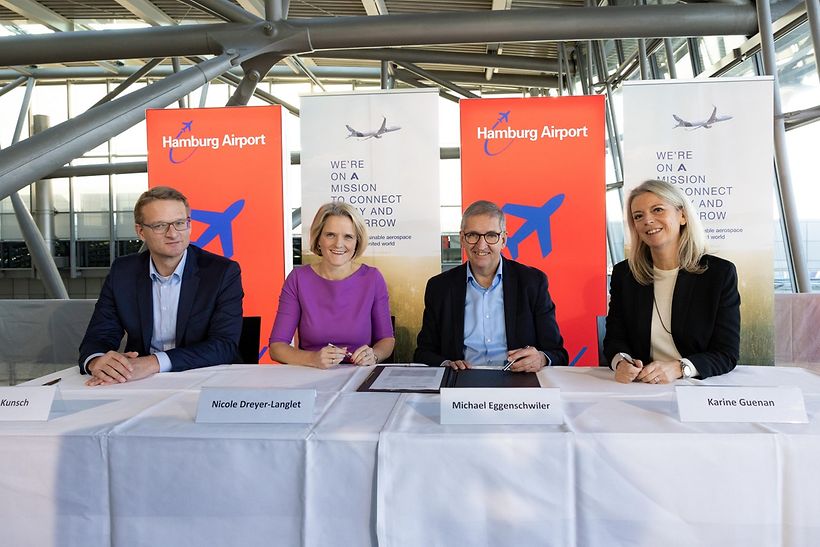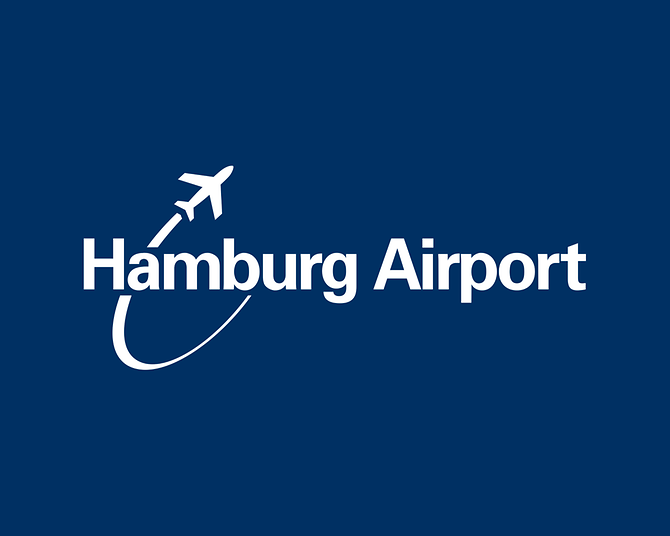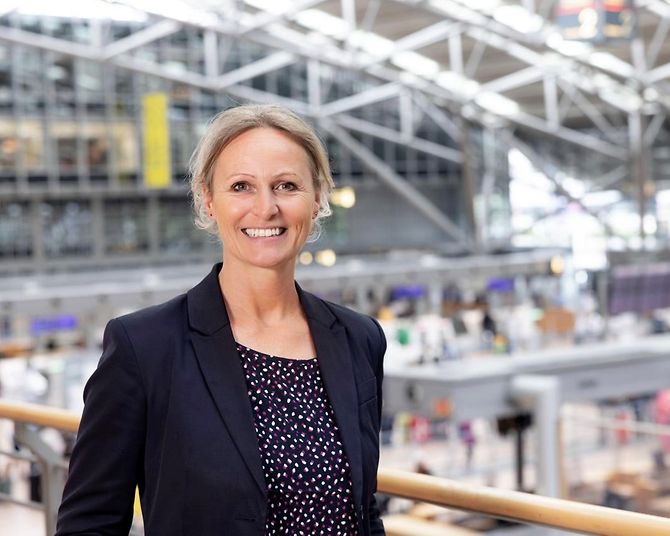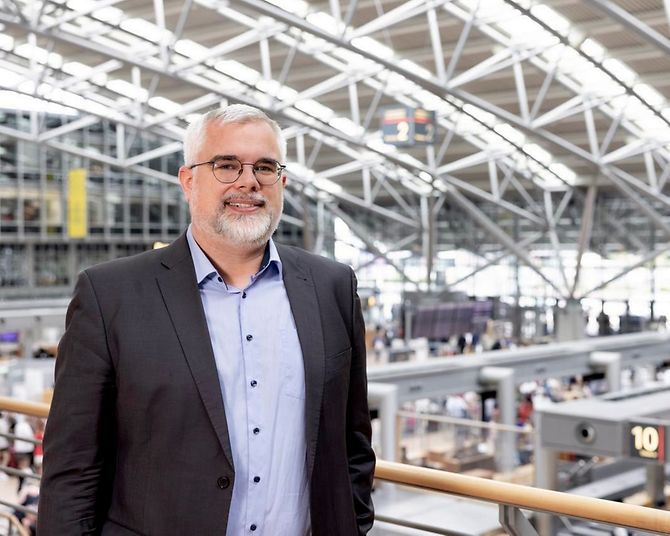Hamburg Airport joins international “Hydrogen Hub at Airports” network
Airbus and Hamburg Airport agree on cooperation for energy transition in aviation // Establishing reliable infrastructure for hydrogen-powered flight
01.12.2023
Hamburg Airport is the first airport in Germany to join the international network for future hydrogen hubs. The goal of the global “Hydrogen Hub at Airports” network is for the aircraft manufacturer Airbus, airports, airlines and companies from the energy sector to work together, researching and establishing a reliable infrastructure for the use of hydrogen in aviation. Other partners invited by Airbus to join the cooperative effort include airports in France, Singapore, Japan and New Zealand.
“We are thrilled that Hamburg Airport is working together on equal terms with such international hubs as Paris - Charles de Gaulle and Changi Airport in Singapore as we make these decisive preparations for an energy transition in air travel,” said Michael Eggenschwiler, CEO of Hamburg Airport, at the signing of the cooperation agreement. “I am very proud of that fact, and also of the pioneering work of our staff, who have been pouring their hearts into laying the foundations for this work over many years.”
Just a few days ago, Hamburg Airport and the German Aerospace Center (DLR) presented a roadmap outlining the future steps necessary to fuel aircraft that are free of CO2 emissions. The findings of that joint research also serve as a template for other airports that want to prepare for hydrogen as a new source of energy.
“We are delighted by the continuous growth of the Hydrogen Hub Network, in Europe and further afield. Hamburg Airport already has a lot of experience with hydrogen infrastructure and is a pioneer in this area,” said Nicole Dreyer-Langlet, responsible for research and technology within the Executive Board of Airbus Germany. “Handling aircraft with hydrogen power will become as commonplace as refuelling them with kerosene is today. We are doing our bit to make this happen, but we depend on seamless cooperation with the airport specialists.”
Joining network of strategic importance for Hamburg Airport
Joining this global network is also of strategic importance for Hamburg Airport: Airlines wanting to offer connections using the Airbus ZEROe when it is launched, for example, require an existing network of airports prepared to serve the aircraft. Hydrogen-powered aircraft that are to take off and land at Hamburg in the future will need destinations where they can also land, refuel and take off again. The “Hydrogen Hub at Airports” network will enable airlines to plan well in advance for routes that can be operated with their hydrogen-powered aircraft. The hubs within the network will provide an equally reliable infrastructure.
Michael Eggenschwiler: “In the end, the airlines are only going to order the aircraft and plan routes when there is a sufficiently large network of hydrogen airports. As the first German airport in the international network, Hamburg Airport is thus investing in its future significance as a transportation hub.”
At the same time, this cooperation provides Hamburg, as a global centre of aviation, with an opportunity to actively contribute to shaping the future of the industry. Johannes Scharnberg, Head of Communications, Policy and Environment at Hamburg Airport: “We see the invitation to join the network as reward and recognition for the numerous hydrogen and environmental projects we have been pursuing for several years. With today’s agreement, we are creating a context in which we can cooperate with our local research and commercial partners to actively shape the decarbonisation of international aviation. This step also demonstrates the strength and competence that is bundled in Hamburg’s leading-edge aviation cluster.”
“Hydrogen Hub at Airports” for the future of air travel
Airbus launched the “Hydrogen Hub at Airports” programme in 2020 to promote research into infrastructure requirements and low-carbon airport operations throughout the entire value creation chain. The first ZEROe concept aircraft were presented by Airbus in 2020. The development of the relevant technological building blocks is now being driven forward in a global research and technology network focused on the development of hydrogen technology for future airliners.
Contact persons for journalists / media
-
Telefon:
+49 (0)40 5075 3611E-Mail:
presse@ham.airport.de -
Telefon:
+49 (0)40 5075 3615E-Mail:
kbromm@ham.airport.de -
Telefon:
+49 (0)40 5075 3680E-Mail:
jniemeyer@ham.airport.de -
Telefon:
+49 (0)40 5075 3671E-Mail:
pwolf@ham.airport.de
